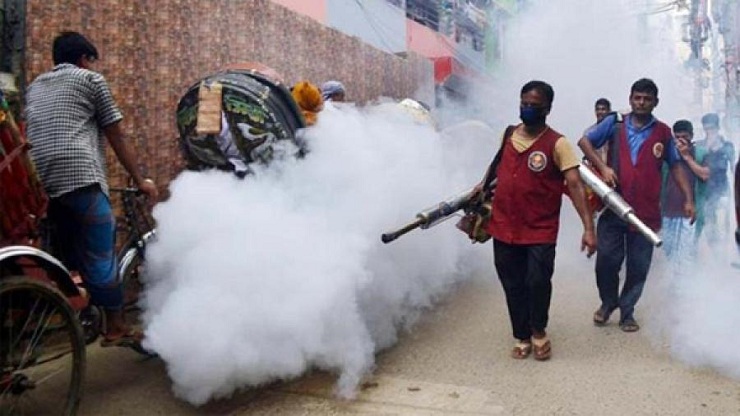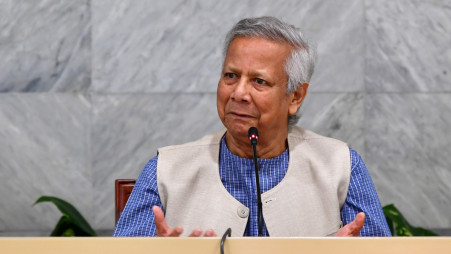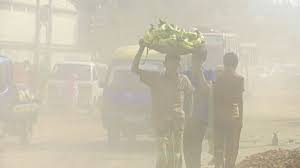Agencies’ tendency to control mosquito by using chemicals has become acute this time as they have failed to control mosquito in last couple of years raising environmental concerns.
Experts said that the authorities heavily depended on chemicals to control the mosquito menace, particularly dengue, without considering integrated vector management to protect the environment.
Ward councillors said that Dhaka South City Corporation and Dhaka North City Corporation were spraying daily 50 litres of insecticides in each ward which was five times higher than that they had used in 1015.
They said that they had increased the use of chemical compounds this monsoon as breeding environment for aedes and other mosquitos is still available in Dhaka and other cities of the country during the COVID-19 crisis.
Environmentalists and entomologists warned that the use of excessive chemical for controlling mosquitoes would harm ecology and suggested for integrated vector management.
They said that the use of adulticides and larvicides, one of the four pillars of vector management, was visible in mosquito control while rest attempts were missing.
Dhaka North city mayor Md Atiqul Islam said that they were adopting the integrated vector management procedure gradually but it would take some time.
Jahangirnagar University professor and vector management expert Kabirul Bashar said that IVM was missing in practice in Dhaka and other district towns even though IVM is environment-friendly and costeffective.
He asked the city authority to incorporate environmental and biological control of mosquito before doing chemical control.
The medical entomologist Kabir also said that without public participation everything would go in vain.
Environmental management includes measures not to let mosquito breeding grounds emerge, biological control means controlling mosquitoes using biological methods including farming of fish or frog in waterbodies, and then the use of chemicals for the rest of the mosquitoes should be preferred, he explained.
‘Primary measures are missing in our country for the lack of knowledge and mosquito controlling activities mostly depend on chemical control,’ he said.
Environmentalists said that the massive use of chemicals not only kill mosquito but also other insects which were important for ecology.
In a recent survey city corporation identified that 60 per cent houses in DNCC area were potential for mosquito breeding while health department survey found larvae in 13 per cent houses.
Entomologists said that if the authorities concerned preferred environmental and biological control measures, they would not have to use such a huge quantity of chemicals because the biological measures would significantly reduce mosquito infestation.
Non-government organisation Social and Economic Enhancement Programme is implementing ‘Lifesaving Early Actions Responding to Nationwide Dengue Outbreak with the support from Start Fund Bangladesh and UK aid to create public awareness to keep city aedes-free.
SEEP also has been campaigning for yearlong IVM activities for sustainable, healthy and eco-friendly vector management.
In 2019, over 1, 01,354 dengue cases hospitalised and over 276 reported deaths from the disease.
In 2017, over 13,000 chikunguniyainfected people took treatment at hospitals while many other patients took treatment at home.












